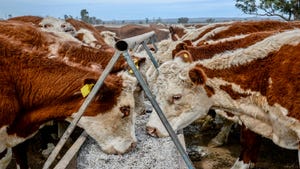Research shows economics of COOL don’t pencil out
Economics of COOL don't pencil out, according to university research. Based on a study commissioned by the USDA, economists report that compliance leads to billions in net economic costs.
May 9, 2015

A study of the U.S. country of origin labeling (COOL) requirement shows that it requires higher costs of compliance but doesn't provide a quantifiable benefit – and will likely result in an adverse economic impact, say agricultural economists Glynn Tonsor and Ted Schroeder from Kansas State University and Joe Parcell from the University of Missouri.
USDA assigned the research, based on a requirement in the 2014 Farm Bill to quantify the market impacts of COOL. The researchers completed the report and issued its findings to government officials May 1.
The researchers found no evidence of meat demand increases for COOL-covered products—those products sold at retail locations such as supermarkets. Because general meat demand has not increased, and the meat industry as a whole has experienced lower quantities and higher costs to implement the additional labeling procedures, COOL has led to net economic losses.
To read the entire article, click here.
You might also like:
12 new products for the ranch this spring
You May Also Like



